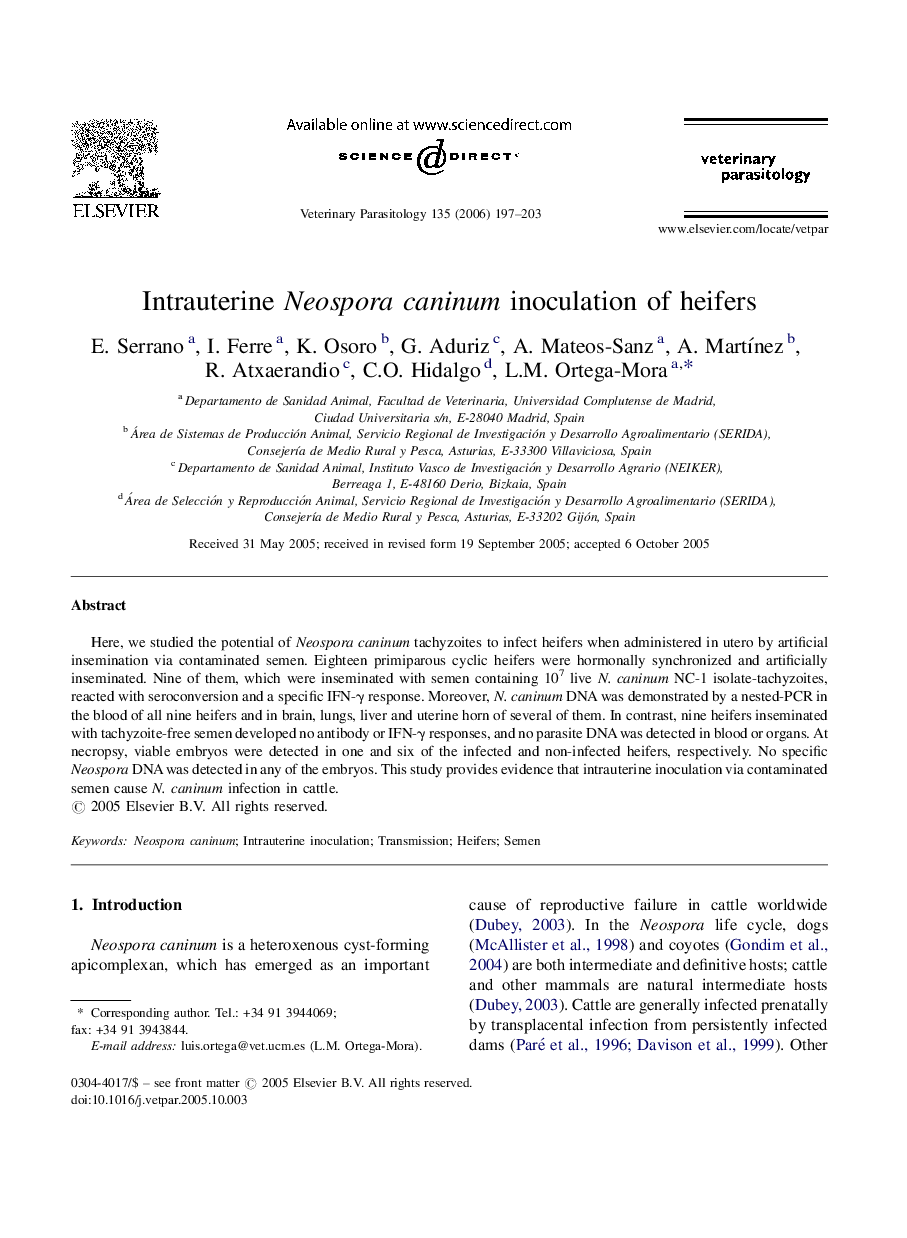| Article ID | Journal | Published Year | Pages | File Type |
|---|---|---|---|---|
| 2472709 | Veterinary Parasitology | 2006 | 7 Pages |
Here, we studied the potential of Neospora caninum tachyzoites to infect heifers when administered in utero by artificial insemination via contaminated semen. Eighteen primiparous cyclic heifers were hormonally synchronized and artificially inseminated. Nine of them, which were inseminated with semen containing 107 live N. caninum NC-1 isolate-tachyzoites, reacted with seroconversion and a specific IFN-γ response. Moreover, N. caninum DNA was demonstrated by a nested-PCR in the blood of all nine heifers and in brain, lungs, liver and uterine horn of several of them. In contrast, nine heifers inseminated with tachyzoite-free semen developed no antibody or IFN-γ responses, and no parasite DNA was detected in blood or organs. At necropsy, viable embryos were detected in one and six of the infected and non-infected heifers, respectively. No specific Neospora DNA was detected in any of the embryos. This study provides evidence that intrauterine inoculation via contaminated semen cause N. caninum infection in cattle.
